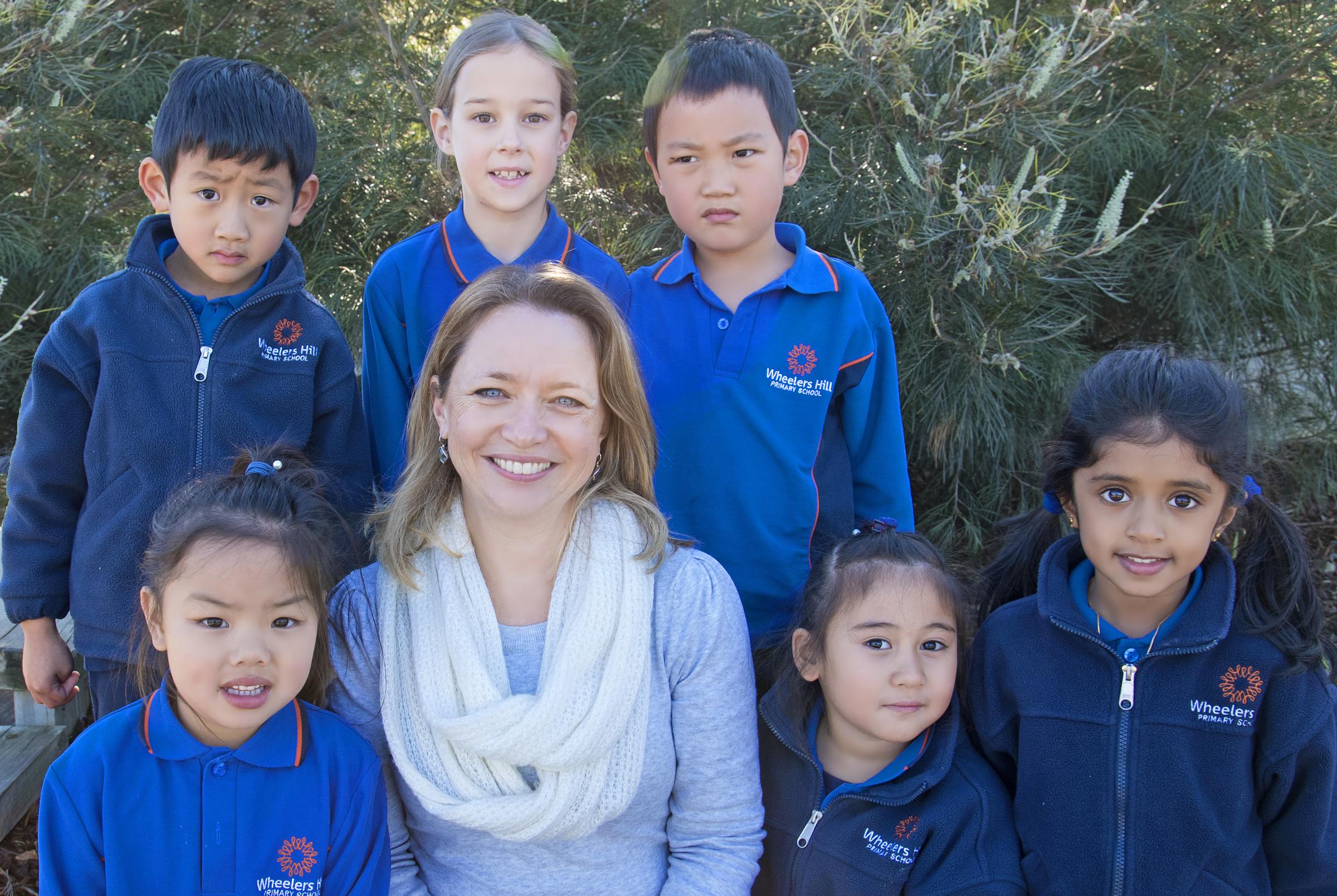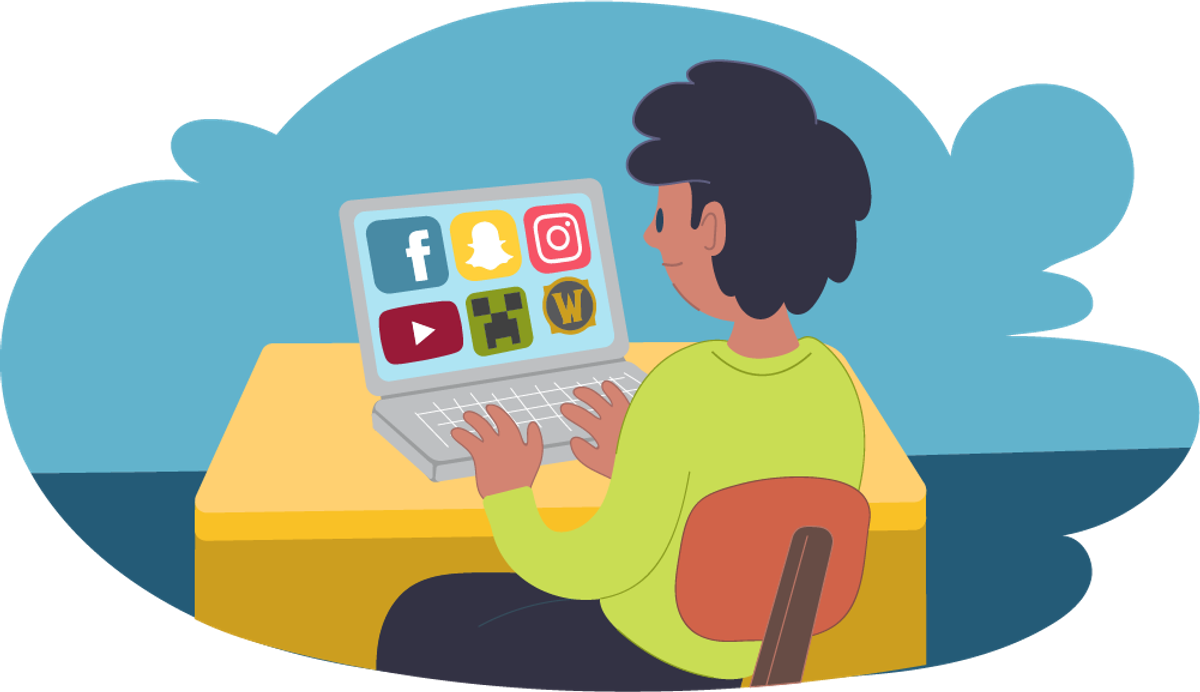Assistant Principal
Katrina Spicer - Wellbeing and Inclusion

Assistant Principal
Katrina Spicer - Wellbeing and Inclusion
FROM THE e-SAFETY COMMISSIONER


As parents, you can help your children safely navigate the online world by taking some basic steps to reduce the risks.
Your support and guidance can give your children the knowledge to make sound decisions online and the confidence to ask for help when they need it.
THREE KEY STRATEGIES
1.Be engaged, open and supportive
If you notice a change in your child’s behaviour or mood, talk with them about it. If you are concerned, consider seeking professional help – from your GP, a psychologist or school counsellor.
2. Set some rules
Consider creating a family tech agreement (sometimes called a family media plan or family online safety agreement). This is a set of rules about how devices are used in your home as well as what acceptable online behaviour looks like. eSafety has created downloadable templates for families with children under 5 or those with kids aged 5 to 8 years. For families with older children, The Family Online Safety Contract from ThinkUKnow Australia is a good starting point.
3. Use safety features and settings


KIDS AGED 5 TO 12
As children start to navigate the online world and interact with others more independently, they are more likely to be exposed to risks of bullying or unsafe contact, to accidentally come across content not designed for children or overspending om in-app purchases.
Your guidance can help them watch for risks and understand what is expected of them. Let them know you are always there to support them.
For ways to start conversations about online safety and difficult topics like child sexual abuse online, see our advice for talking with children aged 0 to 12.
ADVICE FOR PARENTS AND CARERS
TECHNOLOGY TIPS FOR PARENTS OF KIDS 5-12
Katrina Spicer
Assistant Principal for Wellbeing and Inclusion
katrina.spicer@education.vic.gov.au


Self -control is one of the most important life skills our kids can develop. Whether it's a toddler throwing a tantrum, a tween interrupting in class, or a teen glued to their phone instead of doing homework - self-control (or the lack of it) shows up in every stage of parenting.
Here's some encouraging news: self-control is a learned skill. And just like learning to read, ride a bike or play an instrument, our kids can improve their self-control with practice, guidance and the right tools - no matter their age or temperament. (And so can we.)
What is Self-Control (And Why Does It Matter So Much?)
At its core, self-control is our ability to manage our thoughts, emotions and behaviours in ways that help us reach our goals. Note that the 'goals' aspect matters here. Three-year-olds don't have goals due to limited cognitive development, so they don't think about whether to express or suppress their emotions. They just let it all out!
For kids, that might mean calming down instead of hitting, waiting their turn instead of pushing in, resisting a distraction rather than giving in and losing focus, or walking away from an argument rather than fighting back.
Research shows that strong self-control develops from about age three or four, and most kids are ok with it by around 8-10. Self-control is linked to better relationships, improved wellbeing, greater academic success and more positive life outcomes - even decades later. But it's not just about long-term success. It's also about helping our children live more peaceful, connected and meaningful lives day-to-day.
Three Self-Control Strategies that Work - At Any Age
Whether you're parenting a four year old or a fourteen year old, here are three practical, research backed strategies that help children build better self-control:
1. Distraction and Attention Shifting
Temptation thrives on attention. The more kids focus on the thing they want (the lolly, the device, the comeback in the argument), the harder it is to resist. Help your child shift their focus. Younger children might need a change of scenery or a new activity. Older children can be encouraged to engage their minds elsewhere - a different task, music, movement, even humour. Shifting attention isn't avoidance. It's smart regulation. Look at the cloud. Go for a walk. Sing a song. Pray or meditate. Shift focus and increase control.
2. Reframing the Situation
The way we think about something changes how we feel about it. If a child is obsessing over not being allowed something, help them see it differently. For little ones, this might sound playful: "Imaging that biscuit is actually a piece of broccoli." For older children, it might mean encouraging them to look at the bigger picture. "Will this still matter tomorrow?" or "What's the most helpful way to handle this?"
3. Using a Role-Model - The 'Batman Effect'
A powerful technique, especially for younger children, is to have them imagine what someone the admire would do. "What would Batman do?", "What would Wonder Woman say?" For teens, this evolves into a question of identity and values; "Who do you want to be right now?", "What would someone you respect do here?" Stepping outside ourselves, even momentarily, gives us clarity and control.
What About Kids Who Struggle More Than Others?
Some kids, including those with ADHD, anxiety or other challenges, may find self-control especially hard. The research tells us that the same strategies still work, and in fact, they often benefit these children even more. With consistency, support and understanding, they can absolutely grow in this area. Your biggest challenge here will be that it takes a bit of extra work. But that's the case for most things where these challenges exist.
And What About Us?
Let's not forget, self-control isn't just a challenge for kids. As parents, we're often running low on patience, energy and calm. When you feel like you're about to snap, try these quick self-control strategies for yourself:
Our kids catch our calm (or our chaos). The better we regulate ourselves, the easier it is for them to learn to do the same.
Final Thoughts
We're not aiming for perfection. We're raising humans, not robots. Our children will still have meltdowns, make impulsive decisions or act before they think - just like we do sometimes. But every time we coach them through those moments, we're giving them tools they will use for life.
So next time your child is about to lose it - or you are - remember: this is not a character flaw. It's a learning moment. And with time, support and the right tools, self-control can be learned.
And your calm, consistent presence? That's the best teaching tool of all.


Our school subscription to Happy Families allows access to the Happy Families website to all members of our school community.
Families can access the Happy Families website at: https://schools.happyfamilies.com.au/login/whps
Password: happywhps